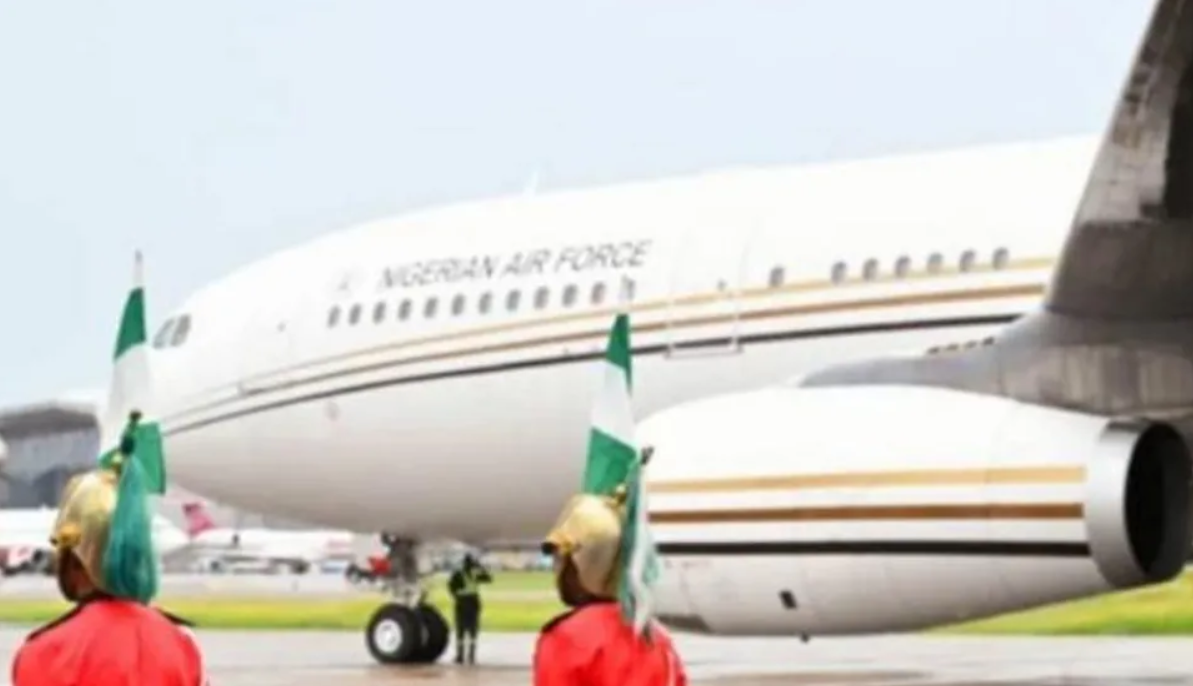Amidst the Economic Crisis, President Tinubu’s Purchase of New Aircraft Sparks Controversy
Given that Nigeria is currently experiencing its worst economic crisis in decades, President Bola Tinubu’s recent purchase of a brand new Airbus A330 has sparked considerable criticism in the country. Protests have broken out all over the nation in response to growing food insecurity and skyrocketing prices, and this news arrives just before they are about to explode.
After taking office last year, President Tinubu wasted no time in enacting sweeping economic changes meant to breathe new life into Nigeria’s flagging economy. The elimination of gasoline subsidies is one of these reforms; this policy change is largely responsible for the present inflation rate, which is more than 30%. These steps are critical for cutting government spending and encouraging long-term economic growth, says President Tinubu.
The president said in January that official travel delegations, including his entourage, would be reduced in size by 60% as part of larger efforts to cut costs. Regardless of this assurance, Nigerians are furious over President Tinubu’s recent trip to France on board the presidential fleet’s newest addition, an Airbus A330. The fleet currently boasts more than five planes.
No one knows how much the president’s new plane cost and nobody knows why he’s on this trip either. The Nigerian public and social media users’ reactions to this occurrence have been varied, ranging from support to criticism.
Reaction from the Public and Criticism
The aircraft acquisition was delayed, which has angered many Nigerians. Someone using the handle @Fdmlearn took to Twitter to rail against the government for encouraging people to weather economic storms while simultaneously pledging to buy a new jet. “With Nigerians fighting for survival in the face of economic hardships, how can the Tinubu-led government rationalize the purchase of a new private jet?” the user asked.
Further expressing their dissatisfaction, another commentator, @RealOlaudah, characterized the choice as “wicked, selfish, self-indulgent, and insensitive to the plight of the average Nigerian.” People feel the government is disconnected from the economic reality they encounter, and the criticism emphasizes this perception.
In favor of acquiring
Some, on the other hand, justify the acquisition. The new planes are pricey, but user @Timi The Law said they’re an investment the president needs. “The plane is property of the president’s office and will be useful to subsequent administrations as well,” the user pointed out.
Responses and Justifications from the Government
In an official statement, Bayo Onanuga, a media aide to President Tinubu, defended the purchase, saying it was necessary to save money. As per Onanuga, the new plane was purchased at a price that is far lower than its market worth. It is anticipated that this will alleviate the high maintenance and fuel expenses associated with the current presidential fleet’s aging aircraft.
After a legal battle, the new Airbus A330 was just delivered to the Nigerian government. A court ordered the Chinese company Zhangson Investment Co. Limited to seize it because of a dispute over investments with Ogun State. This aircraft, which is 15 years old and has elaborate VIP setups, is meant to replace the country’s Boeing BBJ 737-700, which is 19 years old.
Concerns over the safety of the president’s and vice president’s current planes prompted lawmakers to propose purchasing new ones. The new aircraft’s inclusion in the recently approved extra budget, which raised the 2024 budget from 28.7 trillion naira to 35.06 trillion naira, remains uncertain.
There has been no reaction from either the National Security Adviser’s office or the Senate President’s office to the BBC’s requests for clarity.
In summary
In spite of Nigeria’s economic woes, President Tinubu’s purchasing of a new plane remains a divisive topic. Although the government frames it as an essential step toward streamlining operations and cutting costs, many Nigerians see it as an indication of government callousness and a failure to prioritize. This controversy highlights a larger problem: when the economy is in a slump, public expectations and government actions are at odds.


















